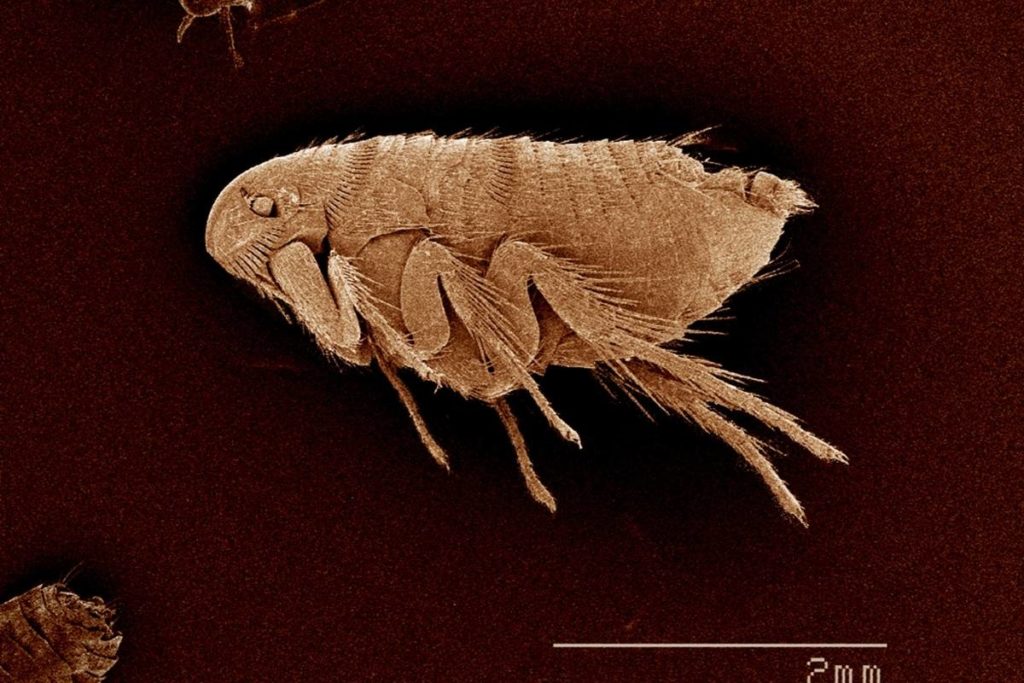What are the Signs of Flea Infestation?
Fleas are a common nuisance to humans, livestock and pets; if left untreated, they can become a serious health issue. Therefore, we have listed the top six indicators of a flea infestation. We also detail preventative measures to reduce the risk of fleas infiltrating your home in the future.

Key Signs of an Infestation
Fleas thrive during the summer months as they prefer warm, moist environments, although their activity continues during winter as they take refuge in heated, indoor spaces. In these ideal living conditions, female fleas can lay up to 1500 eggs in their lifetime. Therefore, it’s crucial to identify the key signs of a flea infestation before it gets out of control.
- Flea Droppings: When combing your pet, place sheets of white paper on the floor and inspect if any black specks fall from their fur. If they do, pour small drops of water on the paper; if the specks turn red, it’s likely your pet has fleas.
- Restless Pets: A common sign of a flea infestation is a restless pet. If they are constantly licking, biting or scratching themselves – particularly around the head and neck area – it’s often to relieve irritated skin caused by flea bites.
- Fur Loss: Sudden fur loss can be caused by certain types of flea bites or constant scratching and itching due to irritated skin. If you notice patches of exposed skin on your pet, we advise taking them to a vet for examination.
- Irritated Skin: Flea bites can cause allergic reactions in cats and dogs, resulting in red, inflamed patches of skin. If you notice your pet has welts or irritated skin, carefully inspect their fur for fleas, especially underbelly and groin areas. We recommend wearing gloves during this process to avoid contracting any fleas yourself.
- Pale Gums: Fleas feed on animals’ blood; therefore, your pets may be at risk of anaemia. If you suspect you have an infestation, check whether your pet’s gums are paler than usual. If so, take them to a vet immediately and contact your local flea control experts to assess the severity of the flea infestation in your home.
- Ankle Bites: Not only can fleas feast on your pets, but they can also make a meal out of you too. If your home has a large flea infestation, you may notice itchy bites around your knees and ankles. Large infestations are best handled by a professional, so we recommend contacting reputable experts in flea control.
Flea Infestation Prevention
Flea infestations can be challenging to deal with. Below we’ve outlined the two top preventative measures to reduce the risk of a flea infestation happening in the first place.
Anti-Flea Products
It’s a good idea to keep your pets on high-quality flea preventatives throughout the year. It may also be beneficial to use anti-flea products within your home. Apply them directly to the carpet and floors to remove any flea eggs or larvae.
Clean Frequently
Keeping a clean household is essential. Hoovering carpets and mowing your garden frequently will remove environments, such as tall grass and dust, that fleas thrive in.
Conclusion
The British Pest Control Association (BPCA) advises that a flea infestation should be dealt with immediately to prevent it from spiralling out of control.
At Confirm A Kill, we offer a price-match guarantee on flea control and deliver cost-effective and professional services across Nottinghamshire. We also provide preventative advice to reduce the risk of fleas invading your home again in the future.
